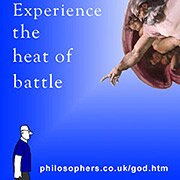History Man: The Life of R.G. Collingwood by Fred Inglis (Princeton University Press) £27.95/$39.50 (hb)

RG Collingwood
When faced with the facts of a polymathic life, one assumption often made is that his real work was one thing and the (archaeological) other was merely some sort of hobby. Although he might have on occasion self-deprecatingly referred to his archaeology in that fashion, the “hobby” of archaeology was an occupation in which he was an expert standing up to experts (literally) in the field. He sought no release from his responsibilities to archaeology on the grounds that his full time paid employment was in philosophy. Clearly, given the sheer volume of published and unpublished work in philosophy, history and archaeology, it would be perverse to consider Collingwood as anything other than a man who, with great strain on his health, achieved a level of expertise and authority across disciplines.
He was the acknowledged leader and focal point of a group of experts on Hadrian’s Wall who are still revered figures in the archaeology of Roman Britain: F. Gerald Simpson, Eric Birley, Ian Richmond and others. In recognition of his leadership position, his pivotal role in leading, synthesising and criticising, and his multi-faceted and various national and international academic connections, they called him Duce. Given Collingwood’s alliance with Benedetto Croce and Guido De Ruggiero against the fascist Giovanni Gentile, he must have enjoyed this teasing irony.
Collingwood’s life is a full, fascinating and complicated story that needs to be told, and Fred Inglis tells it as an avowed partisan, an admirer who desires to breathe new life into our understanding of Collingwood. He wants us to see him whole, not in the fragmented parts with which many of us have become familiar. We are accordingly presented with a picture of a family man, an academic, an Oxford figure as well as someone at home in the trench or speaking to the local archaeological societies of the north. The picture is vivid, lively and colourful; we are able to enter into the features and fancies of a world beyond our own, which nonetheless, for Inglis, produced a figure with very much to offer to ours.
It is this latter feature which prompts one of the three major criticisms I would like to make. Inglis wants to present Collingwood as someone whose life and thought can be reflected on profitably in the present, but in doing so, does he remain within the realm of biography? He frequently writes of the task of the biographer, but there is a case to be made that this book is an essay in the dissection of contemporary culture. The life and work of Collingwood function as the focal point of this essay, as the sounding board for Inglis’s reflections, and as the reference point for the other debates and people that he brings into the story, including diatribes and diversions on Mrs Thatcher, the woes of modern academic life, and the like. So the question has to be asked, is this a biographical essay or a biography?
My second criticism is that although Inglis admirably recognises that it is vital to include a proper recognition of Collingwood’s archaeology, it is less clear that he has succeeded in showing how the archaeological thought and the philosophical thought are intertwined. This is, of course, a daunting task: but greater scrutiny of the relationship, both practically (in everyday life – home, travel, and so on) and in theory (how much did the philosophy drive the archaeology; how much the reverse) would have helped us see more clearly the tensions and lines of force within the life of someone who was – as he always put it – doing two men’s jobs.
The third point concerns the exposition of some of the philosophical works. This can be excellent: frequently Inglis vividly captures in a phrase a concern or puzzle animating Collingwood’s thought. On other occasions, however, he tends to be rather brisk with the philosophy, both in general and in particular. I would have welcomed more detail on the philosophical background and thinking of some of the leading figures at the time: something more than anecdote, something more than a quotation to set the scene and yet something less than a full-scale philosophical analysis of all of the works. In order to see what was driving Collingwood’s thought, sometimes it is necessary to dig deeper into, for example, the technical discussions of An Essay on Philosophical Method, rather than shying away from the task, on the grounds (and on the authority of Bernard Williams) that it is now old fashioned and antiquated.
These comments judge the book by stringent standards: but nothing less is deserved (and would have been demanded by) by its subject: as Inglis himself convincingly shows.
James Connelly is professor of politics at the University of Hull





Discussion
No comments for “Review: The History Man”